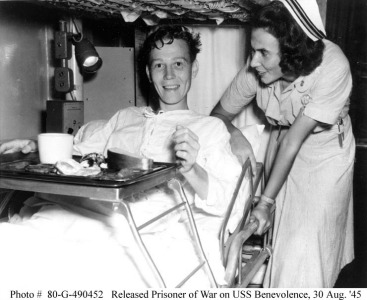Is one of your new year’s resolutions to be a better nurse to your patient? Whether you planned on improving your nurse-patient relations or this article was the first time you’ve thought about that in a while, there are some simple improvements you can make in your day-to-day interactions with patients that won’t require additional continuing education courses or any major effort on your part--just a few tweaks in your approach.
This doesn’t mean that you don’t already incorporate good practices, but sometimes, it’s easy to get jaded and look at your patients as just another body in your hospital.
Here are a few tips to humanize your patients, have them feel better about their experience at your facility, and have you feel better about yourself.
Basics – Know Their Names, + 1 Factoid
This may be really obvious to some, but it’s easy to forget little patient details when you’re caught up in the hustle and bustle of diagnoses, medications and all the craziness that can happen in a hospital.
Make the effort to call him or her by name, ask some basic questions about their lives (family, hobbies, etc.) and follow up with them on any of the topics that stood out as memorable to you, so you can actually show genuine interest.
According to Dr. Brian Secemsky, a contributor to the Huffington Post’s Health Living Section, calling a patient my name and asking them about their children, commenting on the latest update to a program they like or inquiring about a project they’re working on establishes a level of comfort and trust for the patient. Many times, patients may already be dealing with some form of fear or loneliness if they’re injured or sick, so the last thing they need is to feel ignored or emotional disregarded by the person who literally has his or her life in their hands.
Secemsky wrote that many of his patients have shown appreciation for “not being treated like a medical record number”.
Share Things About Yourself
Divulging information doesn’t need to be a one way street. The purpose of having your patient share information is to open up the lines of communication, but it works more effectively if you share something about yourself. Now this doesn’t mean you need to share your deepest darkest secrets, even if the patient gets comfortable enough to do this with you. Keep it interesting, but professional. Remember, nothing you wouldn’t want your boss to know.
If he loves the Yankees, tell him how you love the Mets. If she loves Broadway, talk about how you participate in community theater on the weekends.
Tell Them What You Know About Their Status
Regardless of the rapport you develop with your patient, they’re still at a medical facility to get medical attention of some kind. When you have information about their status or condition, communicate it quickly, with as much respect as possible, even if the update is that there is no new information. If you’ve ever been on the other side of a doctor’s visit, you know the mental torture one can go through waiting to hear back about their scan, blood tests, etc., so as frustrating as it can be to answer what feels like a million questions, or return a patient’s call, approach each situation with the same compassion you would want for a dear family member or loved one.
By taking the extra time to get to know your patient and show concern about what they’re going through, you will give them true peace of mind and make yourself a better healthcare provider.
To read more from Dr. Secemsky, visit here:
http://www.huffingtonpost.com/brian-secemsky/doctor-patient-relationship-_b_4257154.html

